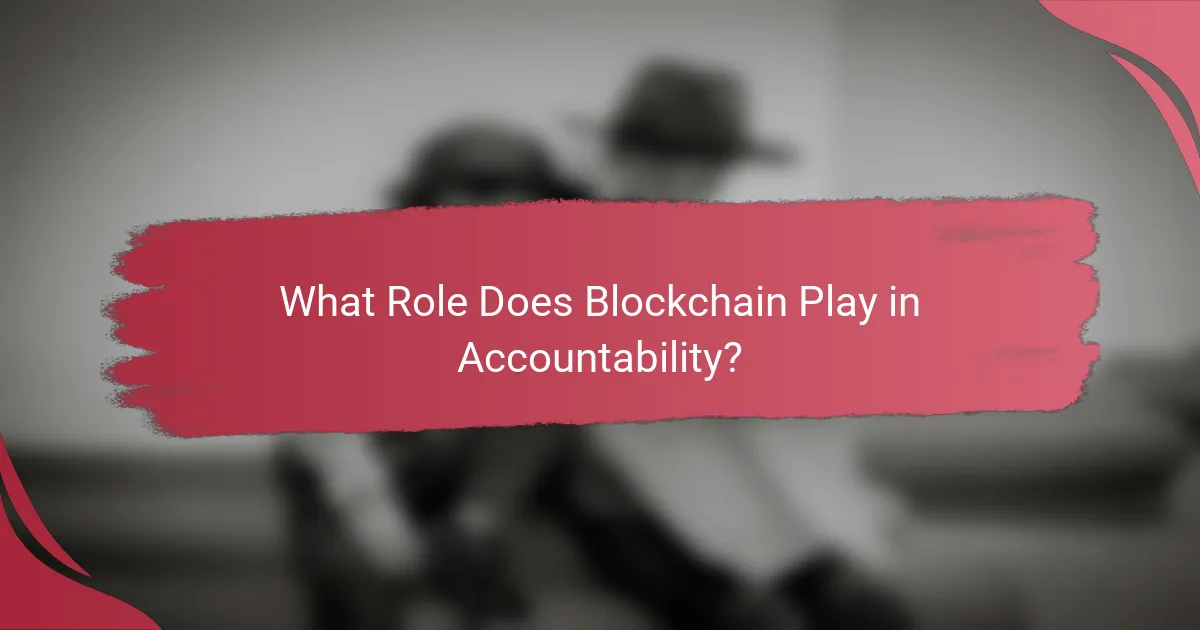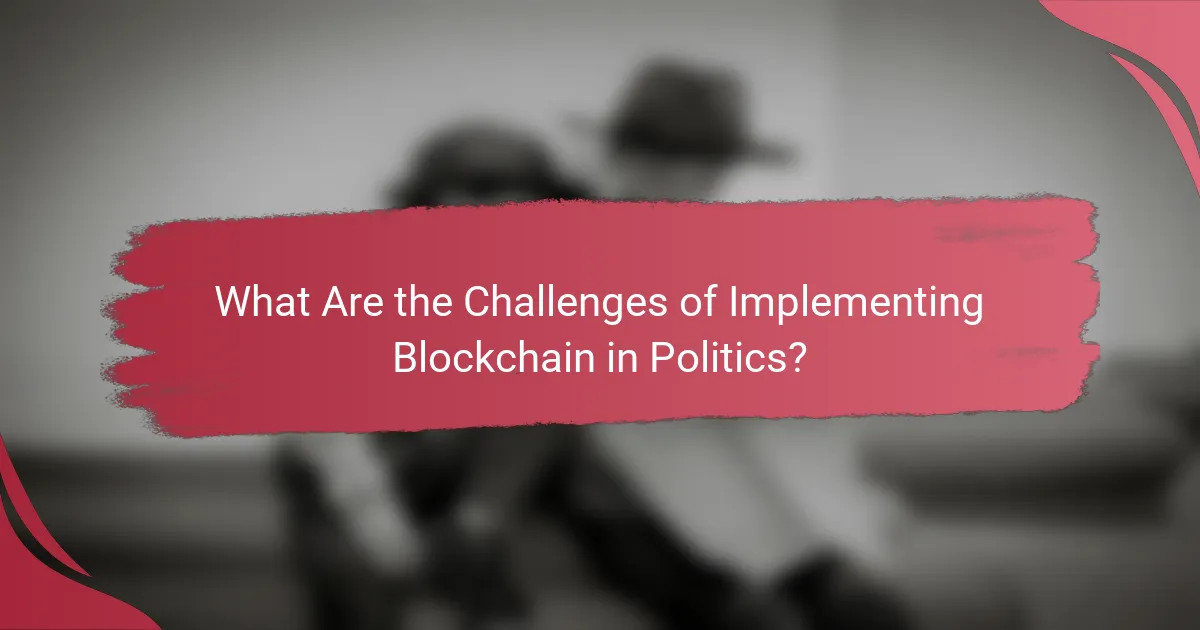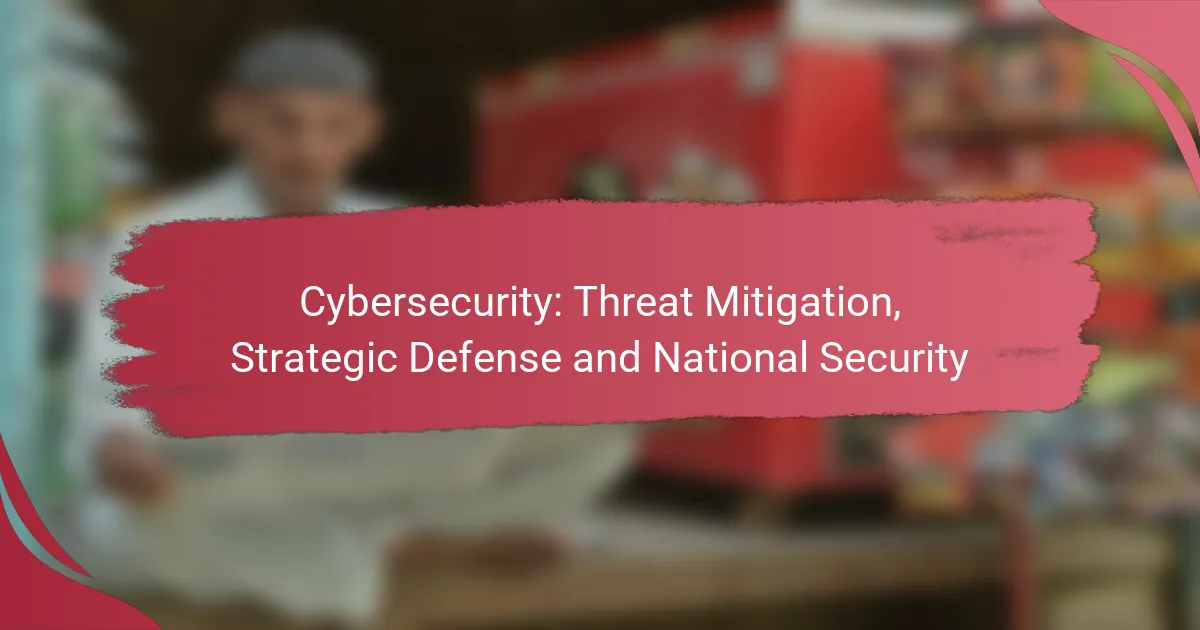Blockchain technology offers a transformative approach to political transparency, accountability, and trust building. By providing secure, immutable records that are accessible to all stakeholders, it fosters an environment where information can be verified and audited, enhancing public confidence in governance. This decentralized system not only ensures traceability of actions but also promotes a culture of accountability among political entities.

How Can Blockchain Enhance Political Transparency?
Blockchain can significantly enhance political transparency by providing a secure and verifiable way to record and share information. Its decentralized nature ensures that data is accessible and immutable, fostering trust among citizens and stakeholders.
Immutable records
Blockchain technology creates immutable records, meaning once data is entered, it cannot be altered or deleted. This feature is crucial for political processes, such as voting and campaign financing, where integrity is paramount. For instance, voting results recorded on a blockchain can be independently verified, reducing the risk of fraud.
Governments can utilize blockchain to maintain transparent records of public expenditures, ensuring that funds are allocated and spent as intended. Immutable records help hold officials accountable, as any discrepancies can be easily identified and addressed.
Real-time tracking
Real-time tracking on a blockchain allows stakeholders to monitor political activities as they happen. For example, citizens can track the progress of legislation or public projects, providing immediate insight into government actions. This transparency encourages civic engagement and informed decision-making.
Moreover, real-time tracking can enhance the oversight of campaign contributions and expenditures, allowing voters to see where funding originates and how it is utilized. This visibility can deter corruption and promote ethical behavior among politicians.
Decentralized access
Decentralized access to information on a blockchain ensures that no single entity controls the data, promoting fairness and transparency. Citizens, journalists, and watchdog organizations can access the same information, fostering a more informed public discourse. This open access can empower communities to hold their leaders accountable.
Additionally, decentralized systems can reduce the risk of censorship or manipulation of information. By distributing data across a network, blockchain helps ensure that critical political information remains available, even in environments where access may be restricted.

What Role Does Blockchain Play in Accountability?
Blockchain enhances accountability by providing transparent, immutable records that can be audited and verified. This technology fosters trust among stakeholders by ensuring that all transactions and actions are traceable and tamper-proof.
Audit trails
Blockchain creates comprehensive audit trails by recording every transaction in a secure and permanent manner. Each entry is time-stamped and linked to previous transactions, making it easy to track changes and verify authenticity.
For organizations, this means that any discrepancies in financial records or operational processes can be quickly identified and addressed. The transparency offered by blockchain can deter fraudulent activities and promote ethical practices.
Smart contracts
Smart contracts are self-executing agreements with the terms directly written into code on the blockchain. They automatically enforce and execute contractual obligations when predefined conditions are met, reducing the need for intermediaries.
By using smart contracts, organizations can ensure compliance and accountability in various processes, such as procurement or regulatory reporting. This reduces the risk of human error and enhances operational efficiency.
Voter verification
Blockchain technology can streamline voter verification processes in elections, ensuring that each vote is securely recorded and counted. It allows for real-time verification of voter identities while maintaining privacy and security.
Implementing blockchain for voter verification can help reduce fraud and increase public confidence in election outcomes. Countries exploring this technology must consider regulatory frameworks and the technical infrastructure needed to support such systems.

How Does Blockchain Build Trust in Governance?
Blockchain enhances trust in governance by providing a secure and transparent method for recording transactions and decisions. Its decentralized nature ensures that all stakeholders can verify and audit actions, fostering accountability and confidence in public institutions.
Increased public confidence
Public confidence in governance improves when citizens can easily access and verify information regarding governmental actions. Blockchain’s immutable records allow for real-time tracking of decisions and expenditures, which can reassure the public that their leaders are acting in their best interests.
For instance, when a government uses blockchain to manage public funds, citizens can see exactly how money is allocated and spent, reducing skepticism about financial mismanagement. This transparency can lead to higher levels of civic engagement and trust in public institutions.
Reduction of fraud
Blockchain technology significantly reduces opportunities for fraud in governance by creating a tamper-proof ledger of transactions. Each entry is encrypted and linked to previous entries, making it nearly impossible to alter past records without detection.
Governments can utilize blockchain to monitor procurement processes and public contracts, ensuring that all transactions are legitimate. This capability can deter corrupt practices, as any attempt to manipulate data would be easily traceable.
Transparent decision-making
Transparent decision-making is facilitated by blockchain’s ability to document every step of a process in a clear and accessible manner. Stakeholders can review the rationale behind decisions, which fosters an environment of accountability.
For example, if a local government proposes a new policy, blockchain can record public consultations, votes, and the final decision, allowing citizens to understand how their input influenced the outcome. This level of transparency can enhance public trust and encourage more informed participation in governance.

What Are the Challenges of Implementing Blockchain in Politics?
Implementing blockchain in politics faces several significant challenges, including regulatory hurdles, technological barriers, and public awareness. Each of these factors can impede the adoption of blockchain solutions aimed at enhancing political transparency and accountability.
Regulatory hurdles
Regulatory hurdles represent a major challenge for blockchain implementation in political systems. Governments often lack clear frameworks for blockchain technology, leading to uncertainty for developers and users. In many cases, existing laws may not adequately address the unique aspects of blockchain, creating a need for new regulations.
For instance, issues related to data privacy, voter identity verification, and digital signatures must be carefully navigated. Policymakers need to collaborate with technology experts to create regulations that promote innovation while ensuring security and compliance.
Technological barriers
Technological barriers can hinder the effective use of blockchain in politics. Many political institutions may lack the necessary infrastructure to support blockchain systems, including reliable internet access and secure hardware. Additionally, integrating blockchain with existing legacy systems can be complex and costly.
Moreover, the scalability of blockchain solutions is a concern, especially during high-demand periods such as elections. Solutions must be designed to handle large volumes of transactions quickly and securely to maintain public trust and operational efficiency.
Public awareness
Public awareness is crucial for the successful implementation of blockchain in politics. Many citizens may not fully understand how blockchain works or its potential benefits for transparency and accountability. This lack of understanding can lead to skepticism and resistance to adopting new technologies.
To address this, governments and organizations should invest in educational campaigns that explain blockchain’s functionality and advantages. Engaging with the community through workshops, seminars, and informative materials can help build trust and encourage public support for blockchain initiatives in the political arena.

What Frameworks Support Blockchain Adoption in Governance?
Frameworks that support blockchain adoption in governance focus on establishing clear policies, engaging stakeholders, and ensuring transparency. These frameworks help create an environment conducive to trust and accountability in public administration.
Policy guidelines
Effective policy guidelines are essential for integrating blockchain into governance. They should outline the legal and regulatory frameworks that govern blockchain usage, ensuring compliance with existing laws while promoting innovation. For instance, countries like Estonia have implemented clear regulations that facilitate blockchain applications in public services.
When developing policy guidelines, consider the following key aspects: data privacy, interoperability with existing systems, and the potential for scalability. Policymakers should also engage with technology experts to understand the implications of blockchain technology on governance.
Stakeholder engagement
Stakeholder engagement is critical for successful blockchain implementation in governance. This involves collaborating with various parties, including government agencies, private sector partners, and civil society organizations. Engaging stakeholders helps identify their needs and concerns, fostering a sense of ownership and trust in the process.
To effectively engage stakeholders, governments can host workshops, public consultations, and pilot projects that allow for hands-on experience with blockchain applications. Regular communication and feedback loops can also help address any challenges and adapt strategies as needed, ensuring that the blockchain initiatives align with public interests.



